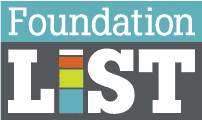Millennials Value Volunteering
Often accused of being an apathetic generation, millennials are more committed to volunteering than were young Americans a generation ago, the Associated Press reports.
According to an AP-GfK poll of 1,044 adults, three out of ten (29 percent) Americans under the age of 30 agreed that citizens have a “very important obligation” to volunteer, a significant increase from the 19 percent who said the same thing in a 1984 survey conducted by NORC at the University of Chicago. While an average of 28 percent of all respondents said volunteering was very important, the survey found that respondents age 50 and older thought it was less important than did respondents who were 50 or older thirty years ago.
The poll also found that young people’s sense of civic duty as measured by their commitment in five other areas — voting, serving on a jury, reporting a crime they’ve witnessed, speaking English, and staying informed about news and public issues — is lower than that of previous generations, and of Americans overall. For instance, while 37 percent of all respondents considered staying informed to be very important — down from 56 percent in 1984 — 28 percent of those under the age of 30 said they feel no obligation to stay informed. Although a similar number said they felt no obligation to volunteer, a survey by the Corporation for National and Community Service and the National Conference on Citizenship found that 21.7 percent of millennials volunteered in 2013, up from 14 percent in 1989.
“That’s partly the fact that we have built up our institutions for volunteering,” Peter Levine, associate dean for research at Tufts University’s Jonathan M. Tisch College of Citizenship and Public Service, told the AP. “Something like 30 percent of high schools have service-learning programs. They didn’t have that in the 1980s.”
Rutgers University professor Cliff Zukin, who studies civic engagement, said he sees little to suggest that the positive trend in volunteering among millennials will bring about a return to higher levels of political engagement or a stronger embrace of other civic virtues, all of which were in decline well before today’s young adults came of age. As if to prove the point, while the AP-GfK poll found that three-quarters of Americans considered voting to be a very important obligation, only 36 percent of eligible voters turned out to vote in November’s midterms elections, the lowest level since World War II. “They’re starting at a very, very low point,” Zukin said of millennials. “And each generation seems to have peaked at less than the previous generation….The people who were forty two decades ago aren’t as engaged as the people who were sixty two decades ago. This generational slippage tends to continue.”


